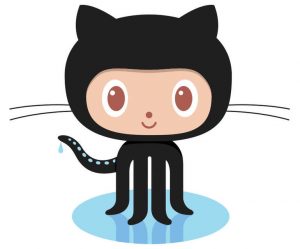Hiring managers are looking for communication skills and a willingness to learn as well as programming skills during a technical interview.
During the hiring process for a software development job, the technical interview is the time to show off your coding skills. It’s also a chance to put other important skills on display, like conflict management, communication, and cooperation.
SEE: Virtual hiring tips for job seekers and recruiters (free PDF) (TechRepublic)
Software engineers should emphasize these professional skills as much as expertise in .NET, Java, and Javascript during interviews with hiring managers and dev team leaders.
This advice from recruiters and experienced developers will help you figure out how to use a technical interview to show that you can bring more than software engineering skills to the team.
How to highlight soft skills employers want
Steve Cooper, CEO of IT training company NextUp Solutions, said it’s a mistake to assume the interview process for a software engineering job will cover only tech-related topics. Employers also care about how you handle conflict and how you’ll communicate with customers and stakeholders.
“Show your future employer that you can play well with others, and you’ll set yourself apart,” he said.
Jessica Mofford, a senior technical recruiter at vacation rental company Vacasa, suggests finding a few examples of how you have learned from your mistakes over the years.
SEE: The best programming languages to learn in 2020 (TechRepublic)
“I find it helpful to write out some lessons learned in your professional career from a non-technical standpoint and how you may have handled it differently now,” she said. “This will help you recall examples you will be able to speak to on the spot.”
Adam Hill, the lead development manager at The Blueprint, an IT consultancy for small and mid-sized businesses, recommended sharing examples of how you stay up to date on new technologies, develop new skills, and improve your programming skillsets.
“Even showing how you do this in other aspects of your life through hobbies or other interests is useful to give interviewers a more well-rounded understanding,” he said.
Jefferson Frank Executive Vice President Patrick Navarro said that hiring managers often have prepared questions in case a candidate mentions having a particular soft skill.
“If someone mentions that they’re a quick learner, I like to ask, ‘What was the last thing you learned?'” he said. “It lets an interviewee give a concrete example of their abilities while letting the hiring manager see how they react when put on the spot.”
Practice your pitch and polish your appearance
Nidhi Joshi, a business consultant at software development company iFour TechnoLab, recommends having a personal elevator pitch ready for the interview.
“Include your education, experience, and projects but avoid the common format of just revealing the timeline of your career, this is the time to impart more than your resume,” she said.
Aqsa Tabassam, an entrepreneur and editor-in-chief of InsideTechWorld, recommends finding a friend or colleague who is an HR professional or career coach for a short consultation.
“They could brief you in 10-15 minutes about how you should behave during the interview, including your body language, tone, and dress,” she said.
How to stand out from the crowd
Joe Ferrara of the website design firm Forge Mt recommends compiling a set of performance data on your work as a software engineer.
“Include how many users used your software, how many sales it created for the previous companies you worked for, and how many pieces of software you’ve created,” Ferrara said.
Another way to stand out from other candidates is to describe your proudest moment you’ve had as a software engineer, as long as you keep your audience in mind.
“You need to be careful that this isn’t too geeky, depending on the interviewer, because they may not have the faintest idea of what you’re getting excited about,” he said.
Ferrara also recommends thinking about the underlying motivation of the person doing the interview.
“If it’s a hiring manager usually they want to be impressed by your technical skills,” he said. “If it’s a CEO or owner then consider their motivation is sales and the bottom line.”
Matt Wilgus, a principal in the threat and vulnerability assessment services of Schellman & Company, an independent IT audit and certification firm, said he looks for candidates for programming jobs who take the time to teach others.
“Teaching not only shows technical proficiency, but also demonstrates soft skills such as public speaking, patience, and organizational skills,” he said.
Hill of The Blueprint said his best advice is don’t be a jerk.
“Be courteous and humble while interviewing because interviewers remember how you answer as much as your actual answers,” he said.
Also see
How to become a developer: A cheat sheet (TechRepublic)
Implementing DevOps: A guide for IT pros (free PDF) (TechRepublic)
Telephone interview cheat sheet: Software developer (TechRepublic Premium)
Programming languages: Developers reveal most loved, most loathed, what pays best (ZDNet)
It takes work to keep your data private online. These apps can help (CNET)
Programming languages and developer career resources (TechRepublic on Flipboard)

Image: Jovanmandic, Getty Images/iStockphoto
Source of Article




